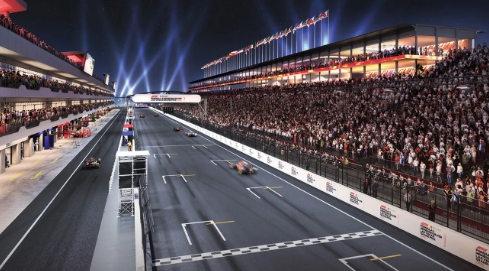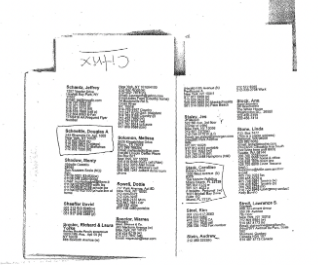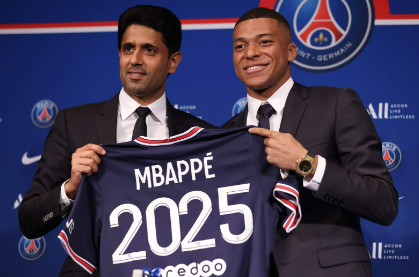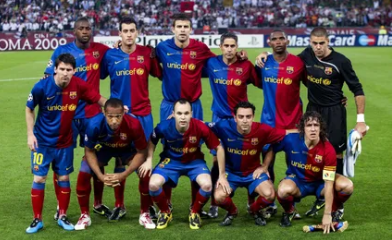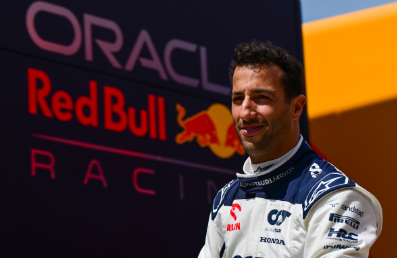Filed under:
A race in the lights of casinos with a backdrop of the Bellagio fountain, it sounds picturesque, the perfect location for the peak of motorsport. Before this year, the Las Vegas Grand Prix was just a fantasy for drivers and fans to pounder. The idea was crazy stopping traffic in one of the busiest areas to race cars in the street fans watching from the casinos lining the strip. However just before the season started Formula One saw its golden opportunity and decided to capitalize. The project has gotten some praise as being new and fresh but has more widely been criticized for its variety of issues. What started as just a dream is quickly exposing itself to be a nightmare for everyone involved.
While Vegas was undoubtedly in the back of many people's minds the idea began widespread discussion after Red Bull ran a commercial that showed their drivers, Daniel Riccardo and Max Verstappen, take a spin through the streets. The topic didn’t get any serious recognition until recently the issue now was trying to get the city to host. The way F1 hosts all of its races is with a country, city, or track paying the organization to host them. This has made F1 a lot of money and has worked well, however for Vegas they needed to take a new approach after a lack of interest. The stars aligned when the city sold off a piece of the boulevard to an eager Formula One. Now everything from land to construction is the sole responsibility of the organization for the first time in their history. Naturally everything else went perfectly what could possibly go wrong.
Turns out an organization with no history or business in the planning or construction of track struggled a good bit. During the early stages of construction there were already issues and controversies. The construction caused massive traffic throughout the strip affecting locals and their businesses this created an early resentment towards the project. As construction continued the issues piled up, the entire job was rushed to fit the race time frame this rushing led to numerous issues the worst of which being a construction worker losing his life while trying to finish the grandstands.
Outside of the physical construction problems began popping up with how to use the new venue. F1 wanted to charge businesses per person who could fit into the building, if the business wouldn’t comply F1 wanted to block the business view with lights or walling. No one liked this as many felt it was at best annoying and unnecessary and at worse a complete overreach of power, eventually the backlash caused F1 to back off however they still managed to cover up all bridges over the track for safety but mostly to obstruct the view of pedestrians. The whole idea of having more races in the US is to make racing more accessible yet the insane ticket prices combined with this ostracization has just reaffirmed that F1 is more than happy to remain a spot for the elite.
Sports are and always have been for the people, the thrill of the game and the community we find at events makes the often insane prices worth it. However, based on the exclusivity being pushed by F1 there won’t be much community, and worse yet the design of the track takes away any thrill. Street races often get mixed feeling tracks like Monaco and Singapore are iconic but they aren’t always the greatest entertainment wise especially Monaco. All of Monaco's issues pale in comparison to the rectangle they’re trying to pass off as a track. Unlike most of Europe the US especially the western parts of the country is built in a block formation, while this is great for city organization and direction it doesn’t make for a very exciting race. Just looking at the Las Vegas track we can see a lot of straights which will make a very unique race.
Red Bull, who have by far the best car in terms of pure speed, have proved that to beat them you have to use more than just speed. Straight line racing does involve some tactical work however the majority of it is just the speed the car itself carries without much work from the driver. Teams like Red Bull, Ferrari, and McLaren will dominate the race with little competition from the rest of the grid and even from each other. A race that is built out of straights will be another 30 sec lead for Verstappen while everyone else fights for lower places.
Cars like Mercedes who have been carrying massive amounts of drag through the straights won’t even have a chance. Haas, Alfa Romeo, Williams, and Alpine may present some kind of fight amongst each other however it won’t be for much. Even a fight amongst those not in the top four is unlikely as the largest part of the track is a DRS zone, this sets up the only cars who have similar pace to just spend their race in a DRS train. No one enjoys watching a race where there's no passing or fight no matter how pretty the lights look.
Another huge issue this season has been tires and specifically teams looking at how they’re degrading. Tires have already killed several dreams this season and with Vegas track temperatures appearing to be be in the 40-50℉ with rumors of it going as low as 30℉. This is bad news for the tires which won’t be as sticky on the track and will take much longer to heat up. Combine the need for more laps to warm tires with the insane straights and the gap between cars gets even bigger. Tire strategy becomes a side piece as teams have little data with which to make decisions. Turns out holding a race in the desert in winter might not be a good idea.
Las Vegas has proven itself problematic in both its creation and in its actual racing potential but the circuit's poor implications go further than just the one race. Formula One has long been a sport for the most privileged in the world, to compete and to watch was a luxury only a certain class was allowed to enjoy. Nowadays we see many fighting back against this notion online there’s hundreds of pages and videos dedicated to helping people from all backgrounds get into the sport. F1 itself has beginner videos and has stressed the importance of reaching the “untapped market” however this labeling is in itself part of the issue the organization sees these communities as another dollar in their account which has made them focus more on who spends the most dollars. This prioritization of wealth has created at best a reaffirmed sense of exclusion and at worse unsafe conditions.
While Las Vegas is almost guaranteed to be a visually stunning race, the work that went into it; including a man's life, the poor race potential, and the community implications all make this seem more like a disaster. There’s beauty in every circuit but that beauty should come in part from the racing and the community people find within it not just the flashing lights.
